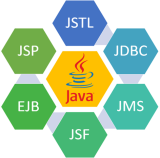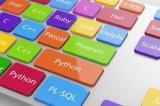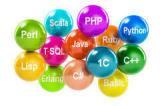Linux Operating System :
Introduction, Features and Architecture
UNIT I:
Files and Directories: File Concept, File types ,File system Structure, File meta data Inodes, Kernel support for files, System calls for I/O operations open, create, read, write, lseek, dup2. File status information stat family, file and record locking, fcntl function, Links Soft links & hard links symlink, link, unlink.
Directories creating, removing, changing directories mkdir, rmdir, chdir, obtaining current working directory getcwd, directory contents, scanning directories opendir, readdir, closedir, rewinddir functions
UNIT II:
Linux Utilities: File handling utilities, Security by file permissions, Process utilities, Disk utilities, Networking commands, Filters, Text Processing utilities and backup utilities.
sed- scripts, operation, address, commands, applications, awk- execution, fields and records, scripts, operations, patterns, actions, associative arrays, string and mathematical functions, system commands in awk, applications.
Shell programming with the Bourne again shell(bash): Introduction, shell responsibilities, pipes and Redirection, Here documents, Running a shell scripts, The shell as a programming language, Shell meta characters, File name substitution, Shell variables, Command substitution, Shell commands, The environment, Quoting, Test command, control structures, arithmetic in shell, shell script examples, interrupt processing, functions, debugging shell scripts
UNIT III
Process : Process concepts, layout of C program image in main memory, process environment -environment list, environment variables, getenv, setenv, Kernel support for process, process identification, process control- process creation. Replacing a process image, Waiting for a process, process termination, zombie process, orphan process, system call interface form process management - fork, vfork, exit, wait, waitpid, exec family, process groups, session and controlling terminal, difference between threads and processes.
Signal- Introduction to signals, Signal generation and handling, Kernel support for signal, Signal function, unreliable signals, reliable signals, Kill, raise, alarm, pause, abort, sleep functions.
UNIT IV
Inter Process Communications:- Introduction to IPC, IPC between processes on a single computer, IPC between processes on different systems, pipes - creating, IPC between related processes using Unnamed Pipes, FIFOs - creation, IPC between unrelated processes using FIFO (named pipes), difference between named and unnamed pipes, popen and pclose library functions.
Message Queues - kernel support for messages, APIs for Message Queues, client/server examples.
Semaphores - Kernel support for semaphores, APIs for semaphores, FILE locking with semaphores.
UNIT V
Shared Memory:- Kernel support for Shared memory, APIs for shared memory, shared memory examples.
Sockets:- Introduction to Berkeley Sockets, IPC over a network, client/server model, Sockets Address Structure(UNIX Domain & Internet Domain), Socket System calls for connection oriented Protocol and connectionless protocol, Example client/server programs - single server-client connection, multiple simultaneous clients, socket options - setsockopt and fcntl system calls, comparison of IPC mechanisms.
Linux Internals, Kernel programming and Device Driver syllabus is separate and will be updated..










